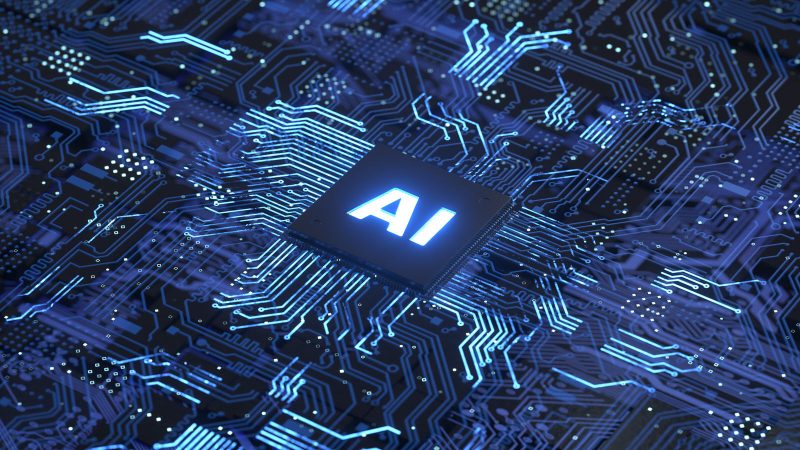by Blackrock Fundamental Equities
Artificial intelligence (AI) continues to defy the norms of linear progress and present a type of exponential growth unlike no technology before, according to BlackRock’s Tony Kim. This fast evolution has brought us to what Mr. Kim calls “AI at the frontier,” a characterization that was confirmed on his recent tour of 25 public and private technology companies across Silicon Valley. He recapped his annual “tech tour” on The Bid podcast.
Like the technology itself, the investment story in artificial intelligence (AI) is continuously evolving ― presenting exciting opportunity for active investors like Tony Kim, head of the Fundamental Equities Global Technology team.
He and 30 BlackRock colleagues traveled 300 miles over five days in June to meet with leaders of 25 public and private technology companies in San Francisco and Silicon Valley. The annual “tech tour” ― the 12th of its kind ― is a critical input to the team’s fundamental research process. Mr. Kim recently joined The Bid podcast, along with Michael Gates, lead portfolio manager of BlackRock's Target Allocation Models, to reflect on the marathon week and a pace of innovation that has AI quickly pushing the edges of its vast potential.
Another year, unprecedented progress
When it comes to AI, one year can amount to decades of progress. While the first nine years of the tech tour had few whispers of AI, the past three have featured an increasingly loud AI takeover. Even relative to 2024, when Mr. Kim said the conversations centered on ideas like chatbots and AI agents, this year brought attention to “the edge of what is possible.”
“Super intelligence, AI at the frontier, was the prevailing narrative,” he recalls, noting that this represents a move up the AI “stack.” This stack begins with infrastructure at the foundation, comprising the chips and cloud framework that enable AI. This is followed by the intelligence layer, which includes the data and AI models, and caps at the application layer, the software services and solutions that leverage the AI intelligence to perform work.
Mr. Kim and his team, who view companies and investment opportunities across the full AI stack, are now seeing the extension of AI applications into physical, real-world forms.
To be sure, the rates of change in AI are “unprecedented” and potentially hard for some to imagine. As humans, he says, we're accustomed to linear forms of change in increments of 5%-10%. In AI, he sees change at the chip level coming in at 2x a year, and at 10x a year at the model intelligence layer. In all, it’s a 20x potential improvement with an exponential scaling of capability. “You compound that one year, two years, three years, four years, and you are soon in the thousands of times improvement in just a few years.”*
A (very) fast forward to 2030
The impact of this high-speed pace of change could be massive over the next five years.
“I think we’ll also have quantum computing come onto the scene in a major way between now and 2030,” the veteran investor says, noting that he has been able to invest in classical computing in his 27-year career and looks forward to the opportunities in the quantum age. How do they differ?
They complement each other, Mr. Kim explains. “It’s a computer for nature versus the computer of the digital world.” Quantum can compute the natural world at the subatomic level, he says, working alongside the classical computing systems that have been driving the charge toward AGI (artificial general intelligence).
“The output of this new computer is profoundly different. Insights to nature, chemistry, biology, drugs, materials ― encryption that we’ve never been able to calculate before ― will create new kinds of data. And then that not only unlocks new discoveries, but it also creates data to help train the AGI system to become even more intelligent. So, there is this symbiotic relationship.”
Mr. Kim was an early champion of quantum technology and a panelist at the Global Quantum Forum in July. “We are at the dawn of this,” he says, just as 2025 has been dubbed “the year of quantum.”
Safety matters
For all its potential, AI does come with questions. One big one centers on issues of privacy and safety. Human-derived breaches will be superpowered by AI’s advanced intelligence, creating “an inexorable rise of attack vectors.” But Mr. Kim is quick to remind that the AI could equally be used to defend against AI-based attackers. It’s a problem that is here to stay in a “cat and mouse battle” of using AI to attack and using AI to defend. This can mean opportunity for cyber security companies, like one leader Mr. Kim visited on the tech tour.
Epic times ahead
All told, AI momentum shows no sign of abating. The biggest players continue to increase their investment in chips and data center development, setting the groundwork for AI proliferation. At the same time, further up the “stack,” Mr. Kim sees AI applications and their growing capability merging into the services economy and expanding AI’s presence and influence in global GDP.
Mr. Gates, in reflecting on the tech tour, notes that “a couple very important companies in the AI space” have been anticipating where we are today for years. “They saw this a couple years ago and they are looking to two years ahead. And what they are seeing for two years ahead is really mind blowing.”
So don’t blink. Mr. Kim believes the next four to five years are poised to be “an epic time of innovation and breakthrough.”
Copyright © Blackrock Fundamental Equities













